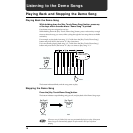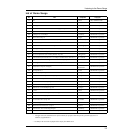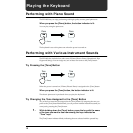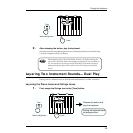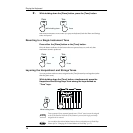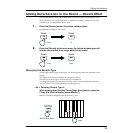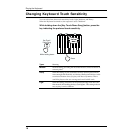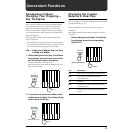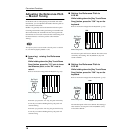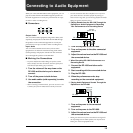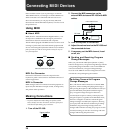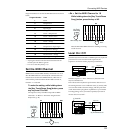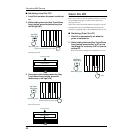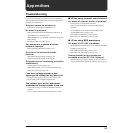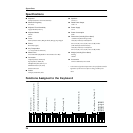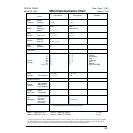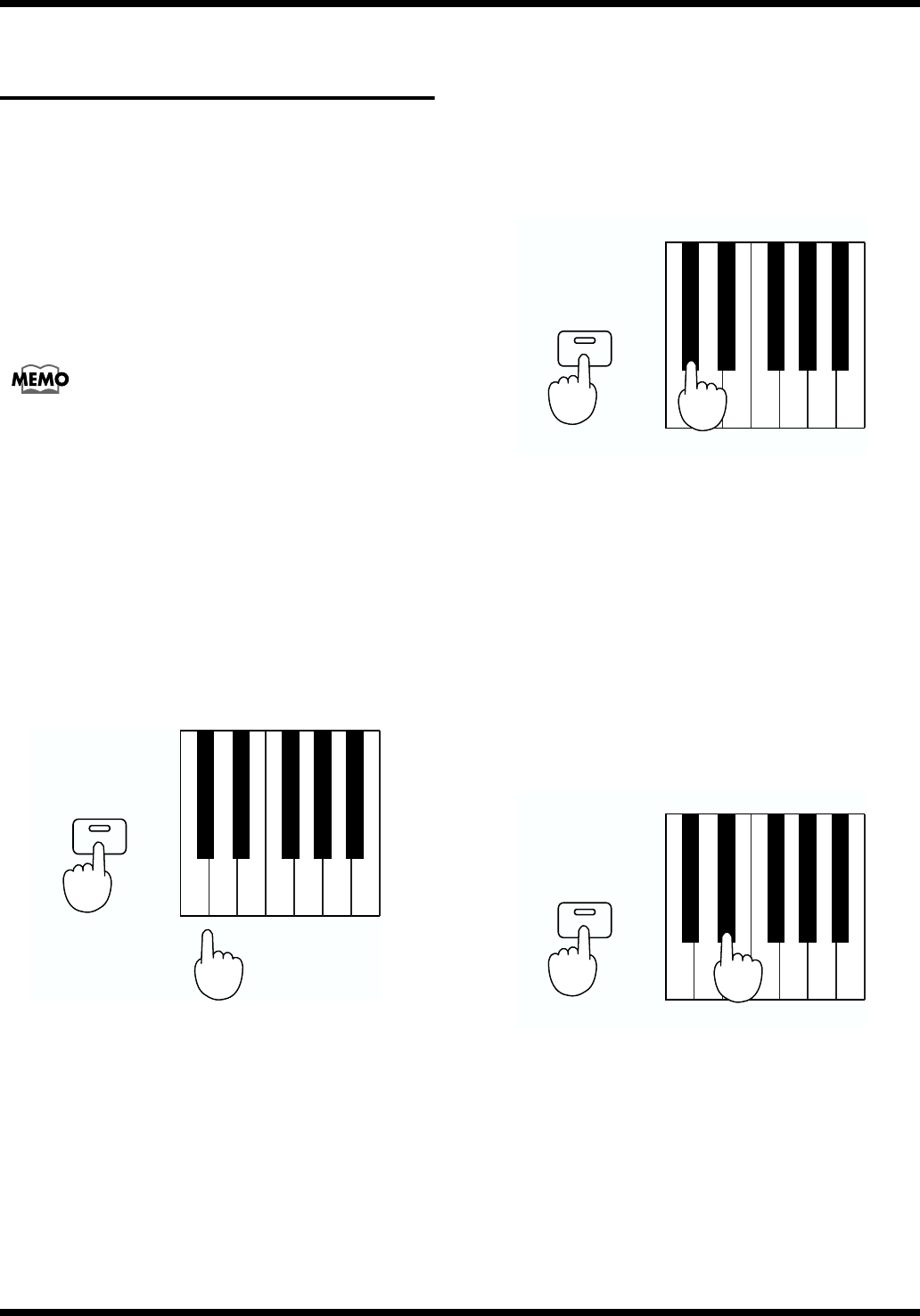
18
Convenient Functions
Adjusting the Reference Pitch
— Master Tuning
In situations such as when playing in ensemble with other
instruments, you can adjust the DP-1000’s reference pitch to
that of another instrument.
Middle A is generally used as the standard reference pitch
for tuning instruments. When performing in ensemble with
other instruments, the ensemble will not sound good if the
instruments are not in tune with each other. This tuning of all
the instruments to a reference pitch is called “Master
Tuning.”
The reference pitch is reset to 440 Hz when the power is switched
on, with 440 Hz played by Middle A (A4).
■ Lowering/ raising the Reference
Pitch
While holding down the [Key Touch/Demo
Song] button, press the “C4” note to lower
the reference pitch, or the “D4” note to
raise it.
Refer to “Functions Assigned to the Keyboard” (p. 24).
fig.5-04.e
Each time you press the “C4” key, the pitch will fall by
0.1 Hz. If you continue holding the key, the pitch will
continue falling.
Each time you press the “D4” key, the pitch will rise by
0.1 Hz. If you continue holding the key, the pitch will
continue rising.
■ Setting the Reference Pitch to
440 Hz
While holding down the [Key Touch/Demo
Song] button, press the “C#4” key on the
keyboard.
Refer to “Functions Assigned to the Keyboard” (p. 24).
fig.5-06.e
The reference pitch will be set to 440 Hz. This is the most
commonly used setting. The A4 (Middle A) key will
sound at 440 Hz.
■ Setting the Reference Pitch to
442 Hz
While holding down the [Key Touch/Demo
Song] button, press the “D#4” key on the
keyboard.
Refer to “Functions Assigned to the Keyboard” (p. 24).
ig.5-07.e
The standard pitch will be set to 442 Hz. This setting is
often used for concert pianos. The A4 (Middle A) key
will sound at 442 Hz.
Demo Song
Key Touch/
While holding down...
Press
D4C4
Demo Song
Key Touch/
C#4
While holding down...
Press
Demo Song
Key Touch/
While holding down...
Press
D#4



